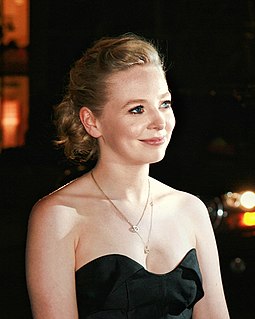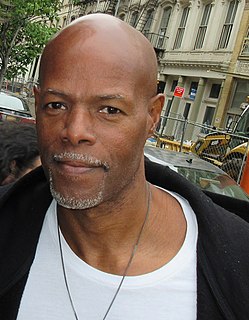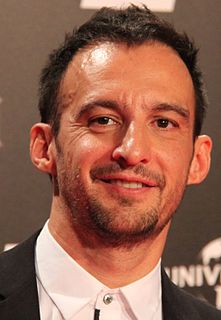A Quote by Guillermo del Toro
You live and die two or three times making a movie. First, you write it, and the first pivotal moment comes when you can get it made. The second is in the process of making it, when the movie reveals itself to you, its flaws and its virtues. Then the most unnerving moment is when that movie is then launched into the world. It’s like bringing your kid to the first day at school and somebody points out that it has bowlegs, it is cross-eyed, or it’s gorgeous. You feel very exposed.
Related Quotes
When you screen it the first couple times, you're just trying to get the movie to work, trying to get the story to flow, trying to find out where your areas are where you have enough breath to laugh a little bit. So you're doing that the first two or three screenings, and then finally, you dial the movie in and it's working, and at that point, it's 50/50 as far as what's funny and what's working. Sometimes you'll put something in and it will just die so hard that it'll almost kill the movie.
In editing, you really face what the movie is. When you shoot it, you have this illusion that you're making the masterpieces that you're inspired by. But when you finally edit the movie, the movie is just a movie, so there is always a hint of disappointment, particularly when you see your first cut.
Then you have these people in the movie theaters that talk the whole time during the movie. You ever go with somebody like that to a movie but you don't realize until you get there that you're with somebody like that? Brand new movie. First day it's open. You're there together and the entire time they're sitting there: Where's she going? Why'd he do that? Is he mad at her? I don't know, let's watch and find out together shall we? You know who you are. You're denying it right now: I do not do that. Why is she saying that?. What's she gonna say next?
I tell everybody on the first day of making a movie that if anyone's here to further their career, they should leave. I'm gonna make the movie in such a way that we won't have a career when this movie comes out. Because the people who hold the moneybags are not going to want to share any of that money with us to make the next movie!
When we wrapped Resident Evil, we were a 3D movie, but it was no big deal. And then, Avatar came out and the whole of Hollywood was like, "Look at these grosses! 3D is huge. Let's all be 3D!" We just got on with doing what we were doing, which was making what we think is a really quality, kick-ass 3D movie, and we'll really be the first live-action 3D movie of the year.
I've ended up as a filmmaker who really loves the movie part of movies. That time in my life was a big influence on the kind of movies that I ended up making. I always think I'm going to make a movie that's gritty and real, but then I make a movie that's like an opera. I fight it at first and then that's just the way it is.
For my first movie, I think my first cut was like three hours, because when you first direct a movie, you want to keep everything. But I'm not one of those directors who falls in love with the stuff they've done. Already when I'm doing my first cut, I'm willing to cut out everything that is necessary.
I think the thing about acting and making music is that it's easy to do both. I'll shoot a movie for three months, and then I won't have to work for however long I want to. So, I can do a movie for a couple of months and then come and do music for a couple. But whatever's hot at the moment is what I'll gravitate toward.
I always get a headache the first time I watch a movie I'm in. Because you're staring at the screen so hard, your brain is doing all this work trying to put things in context of what the day-to-day experience of making it was. And the timeline that's in your head of when it was made, and on what day, how you felt. And then you're also trying to grasp what it's been edited into.







































